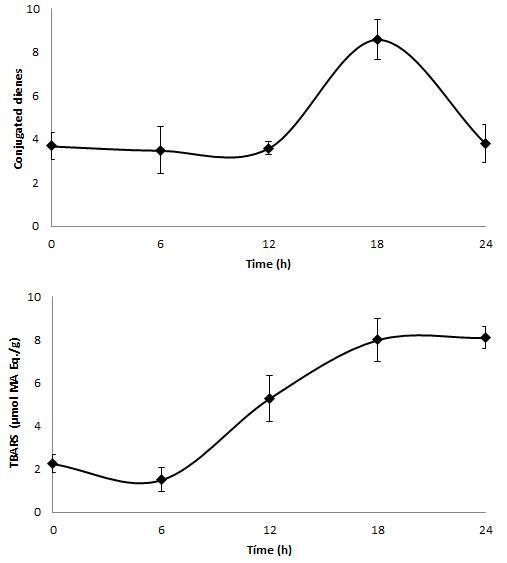 |
|
Moringa oleifera is a crop that has spread throughout the tropics worldwide and its seeds are a non-conventional source of edible oil. The objective of this study was to evaluate the oxidative stability and fatty acid profile of M. oleifera oil under frying conditions for an extended time. Typical parameters used to characterize and assess the quality of edible oils were evaluated following standard methods such as the acid and saponification value. In addition, oxidative stability was monitored by measuring conjugated dienes and thiobarbituric acid reactive substances (TBARS) for primary and secondary oxidation, respectively. The fatty acid profile was determined by gas-liquid chromatography. The results showed 1-2% and 170-340 mg NaOH/g, for the acid and saponification indexes, respectively. In addition, the oxidation values for conjugated dienes were below 10 and less than 10 $\mu$mol of malondialdehyde equivalents per g for TBARS. On the other hand, eight primary fatty acids were identified. Generally, the fatty acid profile was not affected during the evaluated frying conditions. Finally, the results show that M. oleifera oil has significant stability to oxidation and hydrolysis under prolonged thermal conditions.
Keywords: Fats and oils, oxidative stability, oilseeds, crop production and agronomy.
|
|
 |